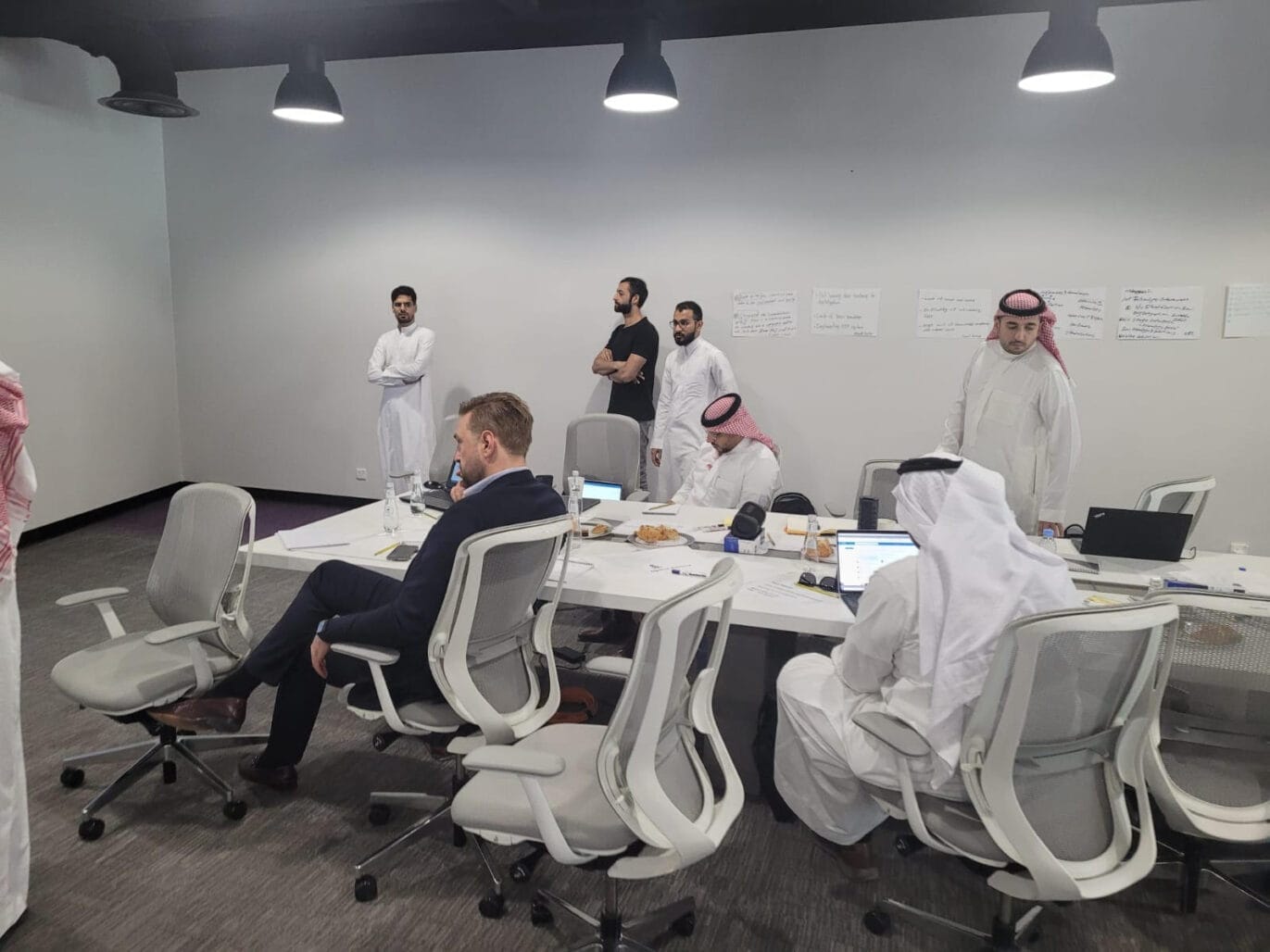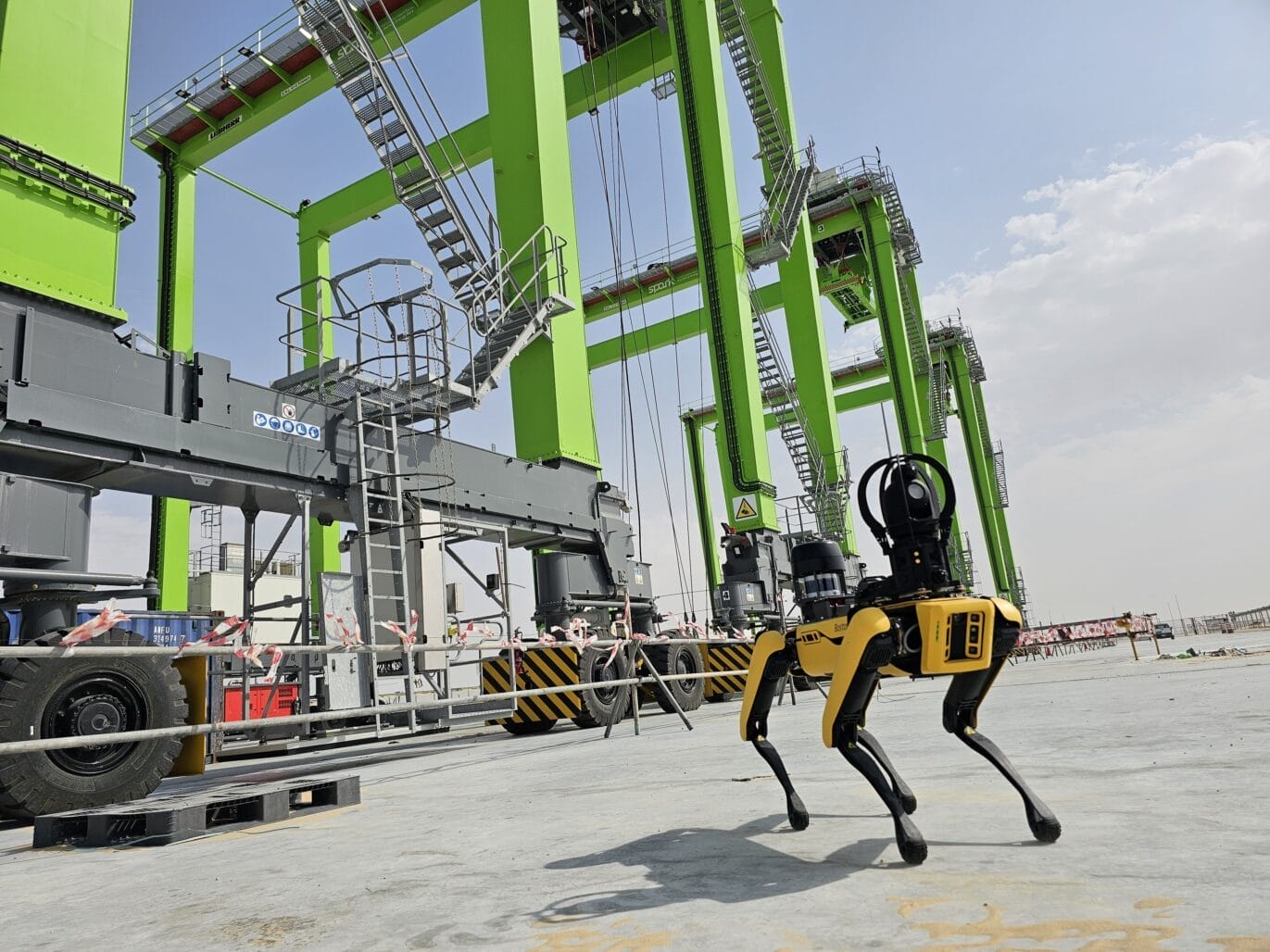Automated factories – the future of manufacturing?
I recently had the honor of participating in a workshop titled ‘‘Accelerating the Impact of Industrial IoT for Small and Medium-Sized Enterprises (SMEs),’’ with the Center for the Fourth Industrial Revolution (C4IR) represented by Dr.Ibrahim ALShunaifi. The collaborative workshop was hosted by the advisor to the Minister of Industry and Mineral Resources, Dr. Majid Algwaiz, to identify the challenges and opportunities related to the vision of automating 4,000 factories.
It was amazing to see the engagement across the different stakeholders at the table, from the technology vendors, the manufacturing companies, and the representatives of the regulators.
What are the challenges?
While the ambition level is there, there is significant work to be done to enable manufacturing companies to adopt new technologies and move up the digital maturity ladder toward automation.
My key takeaways from the workshop are:
- Value engineering needs to be at the core of any effort. Many manufacturing companies have tight margins, so they can’t waste time or money on experiments that do not create ROI. Technology, for technology’s sake, is a no-op.
- Data availability and trust remains a key challenge. Companies struggle with data, from retrofitting sensors and how to connect them to drifting data quality and uncontextualized data from different data sources.
- Access to talent. Small and medium-sized manufacturing companies can’t compete for top talent in data science and related fields. The tools available are too complex for subject matter experts to adopt without significant upskilling efforts that would disrupt operations.
- High initial investment. Building a future-proof data foundation and configuring the necessary tools to build valuable use cases is a significant investment for any industrial company. The current lack of a tier 1 cloud provider in Saudi Arabia makes that investment even larger as companies have to rely on high-maintenance solutions on IaaS or on-prem. Managing an ecosystem of software, solutions and data pipelines require another set of specialists that further increases the cost.
Strategies for success
Automating 4,000 manufacturing facilities is an impressive ambition. For Saudi Arabia to succeed in this ambition, I would propose the following strategic initiative: Establish and fund an alliance of companies that can deliver Smart Factory-as-a-Service to accelerate digitalization for small and medium sized industrial enterprise
This alliance should deliver four core services:
- Value engineering of digital use-cases
- Vertically scalable solutions and use-cases
- A manufacturing data model that can support scaling powered by a DataOps platform
- Connectivity services, both connecting brownfield sensors and retrofitting sensors to equipment
In addition to accelerating the digital journey of SMEs in Saudi Arabia by alleviating these first barriers to success, this initiative can potentially empower a fundamental change in business models in industry by enabling data sharing between equipment vendors and operators.
The need for a shift in business models
Given the constraints above, it is clear that moving from calendar-based and incident-driven maintenance to predictive smart maintenance will not be driven by SMEs themselves. It requires a shift in business models and incentive structures between actors in the value chain.
Equipment manufacturers have the deepest knowledge of the equipment. However, they are not incentivized or able to optimize maintenance. If they had access to data supported by regulation and a business model that pays based on measurable performance, they would be more inclined to invest in centralized expert ML/AI teams to optimize operations.
The “as a Service” revolution that changed consumer software forever will eventually hit industrial companies. We are already seeing the first few examples of pumping- or rotation-as-a-service sold by the equipment manufacturers, and it is an obvious win/win.
Making the initial investment in a centralized effort for smart-factory-as-a-service would accelerate The Kingdom of Saudi Arabia towards Vision 2030 by significantly lowering the cost, and effort, of entry into the journey towards the fourth industrial revolution for SMEs in manufacturing.
Related Resources
All ResourcesGet in touch
There are many ways of “doing cloud” but not all of them will future-proof your business. We can devise an approach that will. Talk to us today – you have nothing to lose but the guesswork.
Contact Us


